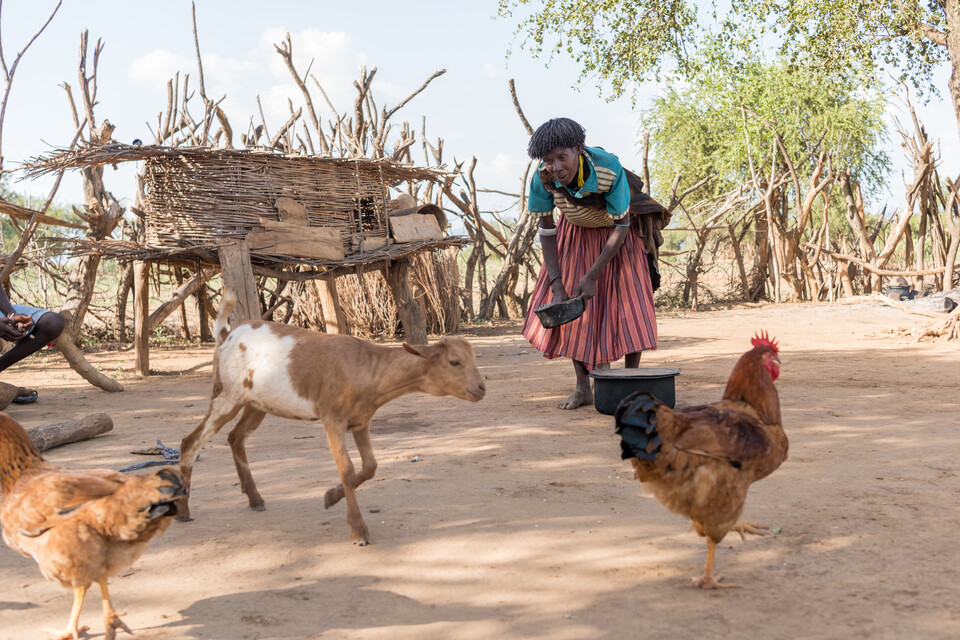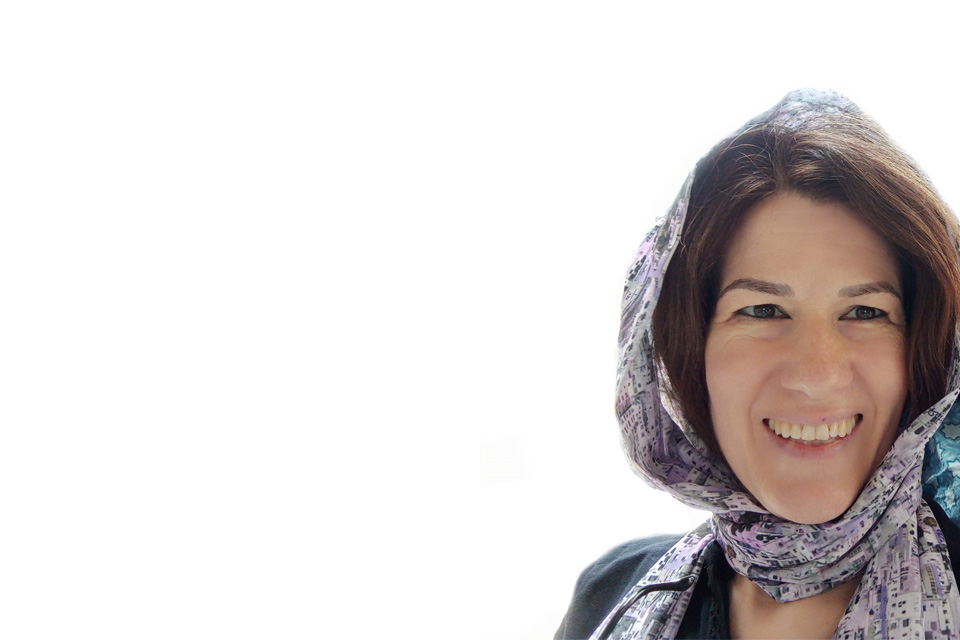Humanitarian Aid
Between War and Disastrous Famine
The war in Ukraine and its aftermath have underscored the interconnectedness of our world, from global events and markets to the pressing challenges we face. Among these challenges is the ongoing issue of global hunger.
Global hunger is on the rise. There are several reasons for this: Conflicts, the climate crisis - and in 2022, additionally high prices due to the Ukraine war. The world's poorest countries experienced rising inflation and prices of oil and food, leading to an increasing number of people suffering and dying from malnutrition due to lack of access to food.
Providing Aid in the Face of Famine
The Horn of Africa faces the most severe hardship. This is where Ethiopia, one of the poorest countries in the world, is located. In 2022, the region has undergone three extremely sparse rainy seasons, resulting in spoiled harvests, dying livestock, and putting 20 million people at risk of hunger. Additionally, food prices have skyrocketed to unprecedented levels.
Through our network of partners on the ground, we offer assistance not only in Africa but also in other affected regions like the Middle East. Our efforts include providing aid during acute crises like famine, as well as long-term initiatives such as education activities, microcredit, training on sustainable agriculture, and support for women as providers for their families.


Interview with our Syria delegate
Ilaria Borella
Humanitarian aid entails more than simply providing immediate emergency aid; it also involves creating sustainable prospects for the affected individuals. Syria serves as an illustrative example, with the crisis persisting for over 12 years and being compounded by the destructive earthquake in 2023. Ilaria Borella, our delegate in Syria, provides insights into the challenges of delivering assistance and highlights Caritas’ support for the local population.
The Syrian population is confronted with a multitude of crises, including recent devastating earthquakes. In the context of these circumstances, what specific challenges do you face in your day-to-day work on the ground?
More than twelve years after the conflict started, Syria continues to face one of the world's most complex humanitarian crises. The earthquake in February worsened the already fragile situation, increasing the need for humanitarian aid, as more people require assistance. At the same time, the prolonged suffering has already taken a heavy toll on individuals, both mentally and physically.
The greatest challenge for us lies in the political and humanitarian complexity of this crisis. We have to continuously adjust our work to the ever-changing conditions in the country. This demands a high level of flexibility to respond effectively to unforeseen situations.
What is required to provide sustainable assistance to the people in Syria?
The demand for humanitarian aid is increasing across all sectors, including the provision of shelter, food security, and education initiatives. To effectively address these needs, we require both emergency aid that is planned and implemented with a long-term perspective and early measures that facilitate the sustainable restoration of livelihoods. Such an approach, of course, necessitates financial support from the international community. Without this integrated strategy, the Syrian population will face significant challenges in overcoming the multiple crises they are confronted with.
Caritas has been actively present in Syria since the 1990s, and its involvement has significantly grown since 2011. This raises the question: What impact has Caritas' assistance shown so far?
Since 2011, our support in the Middle East has reached over 230,000 individuals. Our assistance is grounded in two core pillars: immediate emergency aid and the rebuilding of livelihoods. Through programs such as education initiatives, cash assistance, and training, we offer individuals tangible prospects for the future. These efforts are instrumental in empowering the people to regain self-sufficiency for themselves and their families.
What motivates you particularly in your work for Caritas in Syria?
One aspect that is highly important to us is the collaboration with our sister organization, Caritas Syria. In order to make a meaningful impact, we work closely with local organizations. Our Syrian colleagues show an incredible level of motivation and dedication. They are the ones doing the hard work, listening to people's stories on the front lines, and providing direct assistance to those who are often in desperate situations. Personally, I am constantly confronted with the stories of individuals, which can initially be frustrating but also serve as a source of encouragement. These face-to-face encounters fuel my determination to continue with even greater commitment. This work is more than just a job. Our objective is to assist the poorest and most vulnerable, giving them a voice, strengthening their dignity, and preserving it.

Ihr Browser oder dessen Version ist veraltet und diese Seite damit nicht darstellbar. Bitte besuchen Sie unsere Seite mit einem aktuellerem Web-Browser. Auf der Webseite browsehappy.com finden Sie eine Auswahl an aktuellen Web-Browsern und jeweils einen Link zu der Herstellerseite.